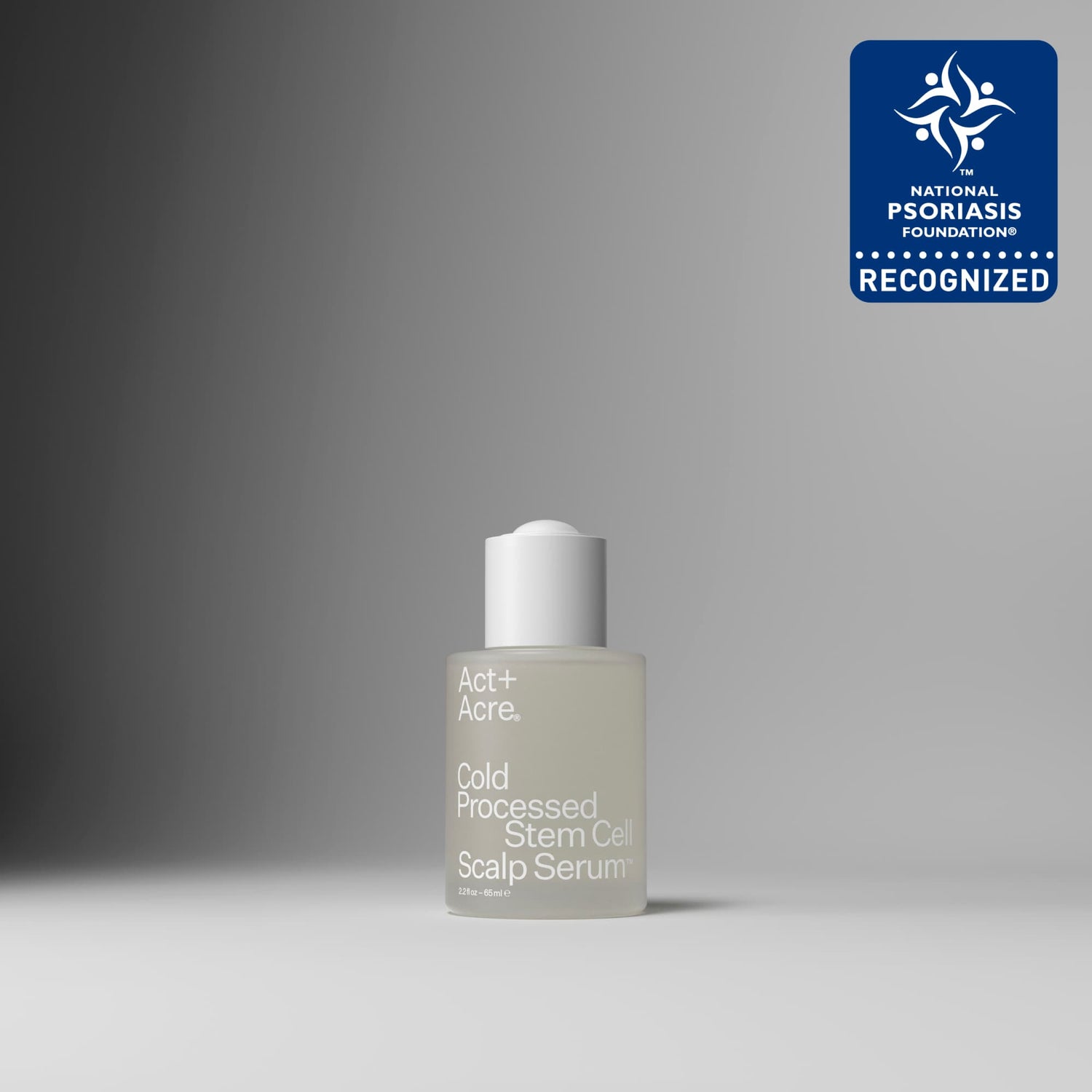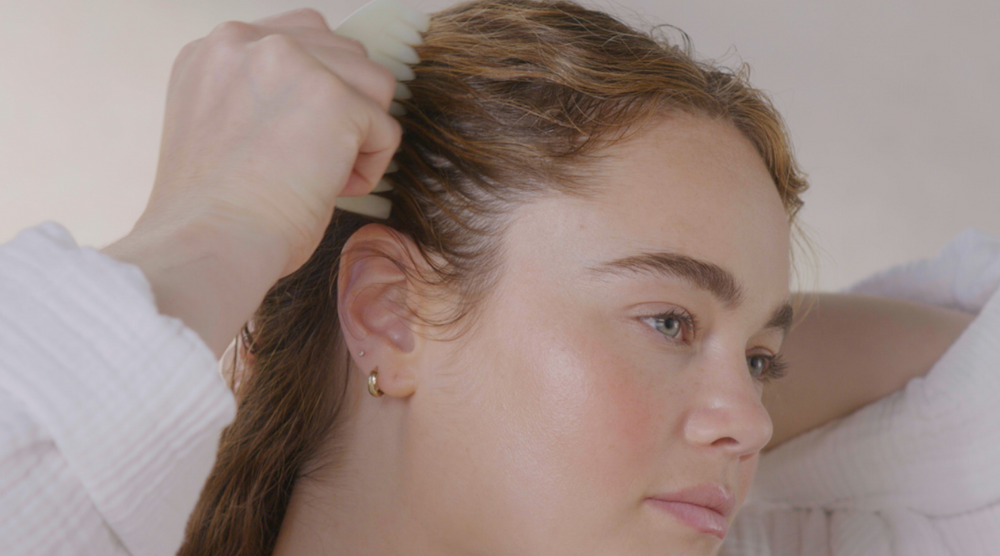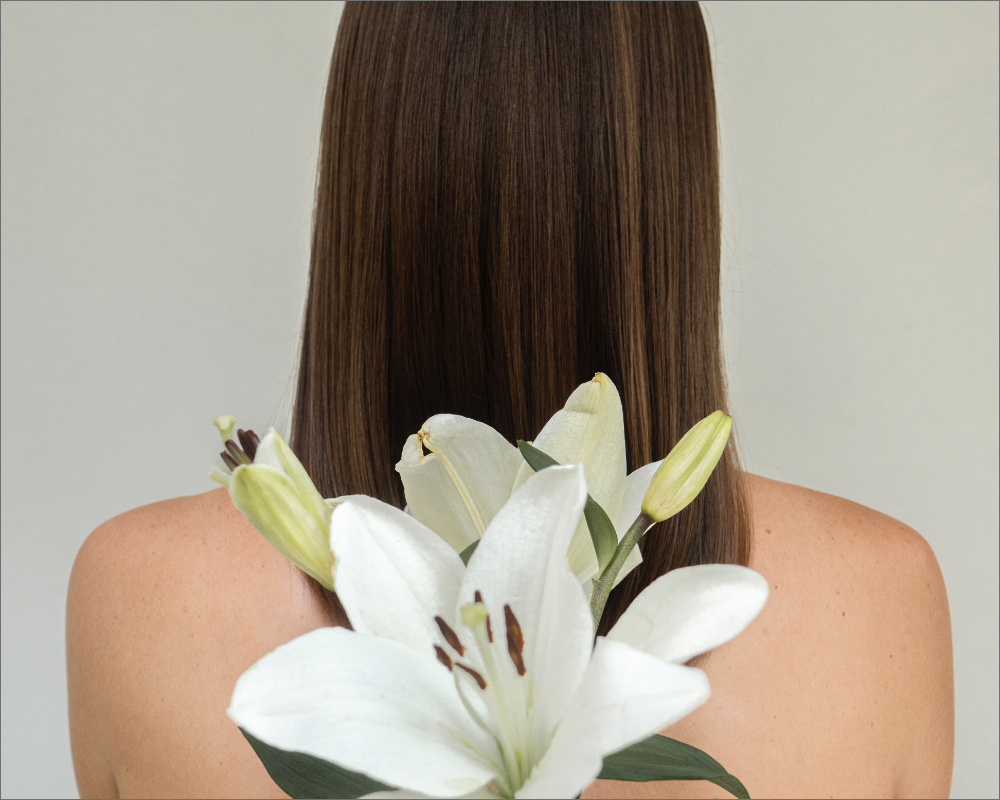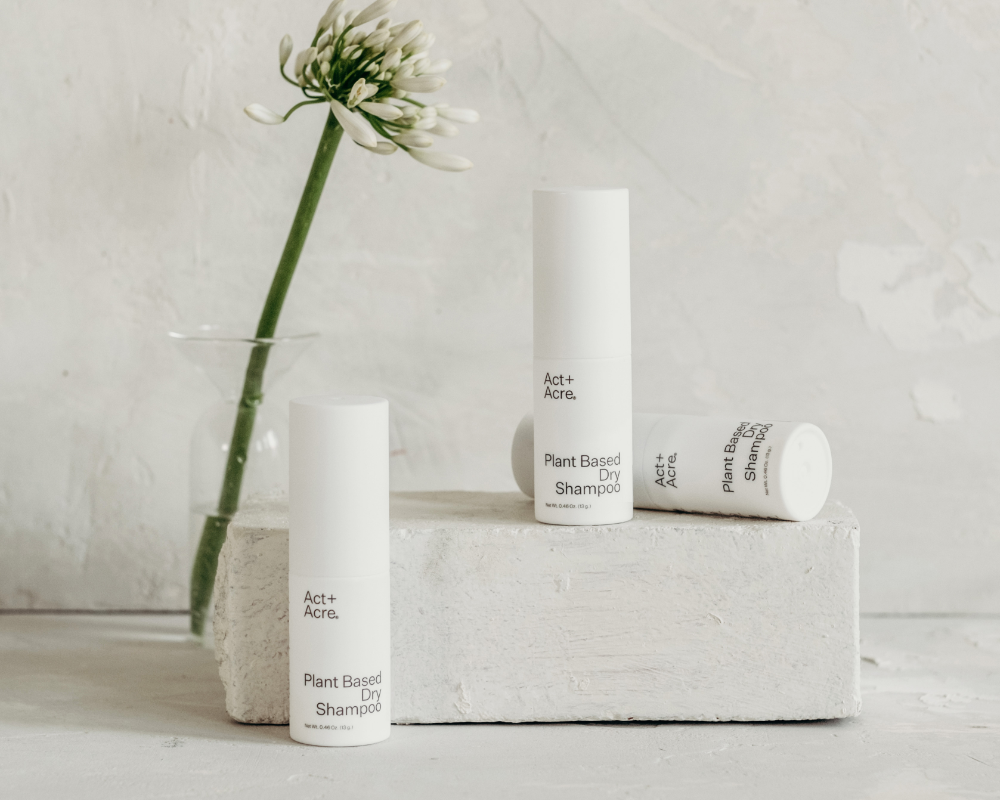Hair loss or hair thinning is something that all men and women will experience throughout their life. While it can often be attributed to hormonal changes, many other factors can influence it—let’s get into it!
Distinguishing Normal Shedding from Hair Loss
A lot of people can often get confused about whether their hair is simply shedding or if they are experiencing actual hair loss that should be of concern. More often than not, it is simply your hair going through its natural shedding process. The average human can expect to lose 50-150 hairs per day, and for every hair you lose, a new one begins growing in its place! It may feel like a lot, but we promise it’s normal.
When might it be actual hair loss? If you can visibly notice your hair becoming thinner over time or balding spots, you may be experiencing some sort of additional loss aside from standard shedding. This can either be a temporary hair loss, or a more permanent form of hair loss.
Temporary Hair Loss
There are so many things that can lead to temporary forms of hair loss. These can include something as simple as wearing too tight of ponytails too frequently, too dramatic changes in your body, such as sudden weight loss, giving birth, or high levels of stress.
Certain illnesses and medications can also lead to more hair loss than usual, along with deficiencies in certain nutrients. The most common nutrient deficiencies that lead to hair loss include:
Vitamin A - All cells need vitamin A for growth. This includes hair, the fastest growing tissue in the human body. Vitamin A also helps skin glands make an oily substance called sebum. Sebum moisturizes the scalp and helps keep hair healthy. Diets deficient in vitamin A may lead to several problems, including hair loss. While it’s important to get enough vitamin A, too much may be dangerous. Studies show that an overdose of vitamin A can also contribute to hair loss.
Vitamin B9 - Also known as folate or folic acid. It is primarily responsible for healthy cell growth. These cells include those found inside your skin tissues as well as in your hair and nails. Therefore, studies have shown that a deficiency in vitamin B9 can result in hair loss.
Vitamin B12 - When vitamin B12 levels are low, your hair follicles may not be able to grow new hair as efficiently, resulting in hair loss. A vitamin B12 deficiency can also cause symptoms of anemia, which is associated with low iron levels, hair thinning, and hair loss
Vitamin D - Research shows that a lack of vitamin D in your body can lead to hair loss. One role vitamin D plays is stimulating new and old hair follicles. When there isn't enough vitamin D in your system, new hair growth can be stunted.
Not washing your hair properly can also lead to hair loss. If you are not thoroughly cleansing your scalp, it can lead to build-up that can block the follicle and inhibit hair growth. Keeping your scalp clean, nourished, and free of buildup is extremely important to ensure healthy growth. Contrary to popular belief, it’s better to wash your hair more often than not, especially if you are prone to scalp or hair issues. As long as you are using gentle, nourishing products, no damage will arise from this. Feel free to cleanse every day should you feel it’s necessary, or every 1-2 days. We always recommend cleansing after a workout for the removal of sweat and dirt.
Lifestyle Habits that can lead to hair loss:
• Smoking – Smoking is one of the fastest accelerators for hair loss, especially in those who are already predisposed to the condition. Smoking affects the normal oxygen saturation levels, restricts blood vessels throughout the body. Hair follicles need a fresh blood supply to stay strong & healthy. Slow flow makes hair regrowth harder. So when hair falls off, it does not grow back. Further, the tobacco enters the skin, bloodstream, and hair follicle leading to hair thinning and eventually hair loss.
• Ponytails – People can get into the habit of wearing their hair in a ponytail because it is convenient. However, this can create pressure on your hair and scalp and lead to hair damage and eventually hair loss.
• Hot Styling Tools – Regular use of hot styling tools, such as your hair dryer, curling wand, and straighteners, can make your hair dry, prone to breakage, and more likely to fall out, especially if you use them every day. When strong, dry heat is applied to the hair it weakens the hair shaft. Dry and frizzy, hair caused by heat damage can also become more difficult to style. However, tackling this issue by using hot tools even more often, will only exacerbate rather than solve the issue.
• Brushing or Combing Aggressively – Brushing or combing your hair thoroughly will stimulate your scalp, which can encourage hair growth, so it's important not to skip this step of your hair care routine. However, you have to be gentle. If you tend to tug and pull your hair or hear ripping sounds as you are brushing it, you are likely to be applying too much pressure or combing in the wrong manner, which will cause breakage and hair loss. Also, your hair is most fragile when wet, so it is important to be even more gentle after washing.
Permanent Hair Loss
Permanent forms of hair loss are often caused by hormonal imbalances and changes over time, and it can affect both men and women. Hereditary-pattern baldness is the most common cause of hair loss. Hereditary-pattern baldness is not a disease, but a natural condition caused by some combination of genetics, hormone levels, and the aging process. Almost all men and women will notice hair loss or hair thinning as they age.
There is a variety of hair loss causes depending on the type of hair loss that you may be experiencing. These causes vary across men and women.
Causes of Hair Loss in Women
Female pattern baldness also called androgenetic alopecia, is hair loss that affects women. It’s similar to male pattern baldness, except that women can lose their hair in a different pattern than men. Hair loss in women is normal, especially as you age. Up to two-thirds of women experience hair loss after menopause. Studies have shown that less than half of women will make it past age 65 with a full head of hair. Female pattern baldness is hereditary. It’s more common after menopause, so hormones are likely responsible. If you notice that you’re losing hair, see your doctor or a dermatologist. They will be able to determine if you’re experiencing female pattern baldness or another type of hair loss. The sooner you get treated, the faster you’ll be able to stop the loss — and possibly even regrow hair.
Causes of Hair Loss in Men
Men normally lose their hair when three main factors interact: genetics, age, and hormones. Also known as androgenetic alopecia, male-pattern baldness happens as hormone levels change throughout a man’s life. Genetic factors also affect the likelihood of male-pattern baldness. These factors contribute to the gradual shrinkage of the tiny cavities in the skin at the base of hairs, known as scalp hair follicles. Hair grows progressively shorter and finer until no new hairs grow. It is thought to affect 50 million men in the United States, and half of all men by the age of 50 years. Although a natural part of the aging process for millions of men, hair loss can be psychologically distressing. Sudden or unexpected hair loss can sometimes indicate a more serious health condition that may need medical attention.
How to Naturally Slow Hair Loss or Thinning Hair Over Time
While it may be difficult to reverse permanent hair loss, there are things you can do now to reverse temporary hair loss and prevent further loss down the road. The easiest things you can do for hair regrowth include:
• getting enough sleep
• drinking enough water
• exercising regularly
• taking care of your scalp with clean hair care products.
If you begin noticing your hair becoming visibly thinner and you cannot pinpoint an explanation, we encourage you to schedule an appointment with your doctor to discuss your concerns. They can help you figure out whether it’s hormonal, caused by a nutrient deficiency, or any other potential factors. That said, there are some potential home treatment options for you to pursue:
Home Hair Loss Remedies
1. Scalp Massages - According to research, scalp massage increases hair thickness by stretching the cells of hair follicles. This, in turn, stimulates the follicles to produce thicker hair. It's also thought that a scalp massage may help dilate blood vessels beneath the skin, thereby encouraging hair growth.
2. A Well Balanced Diet – Foods full of healthy vitamins and nutrients. If you need to supplement your diet, consider Multivitamins, Folic acid supplements, Biotin, Omega 3 & Omega 6 fatty acids. Also, if you are a smoker, try to lose the habit. As we mentioned before, this can lead to hair loss.
3. Introduce Products that help to stimulate growth – Using hair care products that include natural ingredients and Essential Oils will enhance our chances of counteracting hair loss. Products that are free of dangerous ingredients, such as sulfates, parabens, and silicones, but that include Essential Oils such as Coconut, Moringa & Baobab Oil, will help balance your scalp microbiome and enhance the nutrient supply to the hair follicle – an enhanced environment that stimulates growth.
Some examples of such products are:
Act+Acre Scalp Detox – The Scalp Detox is great at removing the build-up of products and delivering nutrients to the hair follicle. It promotes blood circulation and in turn supports healthy hair growth. Using the Scalp Detox is like performing a deep cleanse. It helps to remove toxins and other harsh chemicals from the scalp while balancing our natural oils and scalp pH. Detoxing your scalp will rejuvenate and renew the hair follicles and create a perfect environment for hair growth. Some of the ingredients include:
Basil Leaf: Rich in anti-bacterial and anti-fungal properties to reduce excessive dryness and removes impurities from the scalp
Moringa Oil: Rich source of amino acids, vitamins, and minerals to strengthen the hair shaft
Baobab Oil: Supplies necessary nutrients to hair follicles
Amaranth Oil: Powerful squalene antioxidant that locks in essential moisture and combats free-radical damage
Ylang Ylang: Delivers moisture, controls frizz, and adds shine
Rosemary: Rich in essential vitamins to stimulate and increase circulation in the scalp, promoting hair growth
Lavender: Controls dandruff and promotes hair growth
Vetiver: Aids in rejuvenating and strengthening the hair shaft
Act+Acre Hair Cleanse+Conditioner – The Cleanse+Conditioner follows suit in that they are full of similar Essential Oils and nutrients. They deliver nutrients to the hair and scalp and strengthen the hair shaft, both of which stimulate hair growth. Including products that are rich in nutrients and Essential Oils will only enhance your chances of counteracting hair loss.
Cold Processed® - An important thing to note is that Act+Acre Scalp Detox, Hair Cleanse+Hair Conditioner are all produced using our unique Cold Processed Method®. The Cold Processed Method® uses ice-cold water and high pressure to combine our essential oils and ingredients. By not using heat we can ensure the active ingredients remain fresh and highly potent, just as nature intended, while also saving energy by 90%. Clinical tests have shown that our products retain 97% more active ingredients than traditional haircare. So not only are the products packed full of essential ingredients that stimulate hair growth, but they also retain significantly more active ingredients than traditional haircare!
In summary:
Several lifestyle choices can lead to hair loss. However, it is important to remember that genetics, age, and hormones can also play a role in hair loss. While we can change our lifestyle habits to aid hair growth and to counteract hair loss, sometimes it is not fully in our control. Following the above steps will help a lot of people but if you do experience a large amount of hair loss we would always advise you to seek medical advice.











